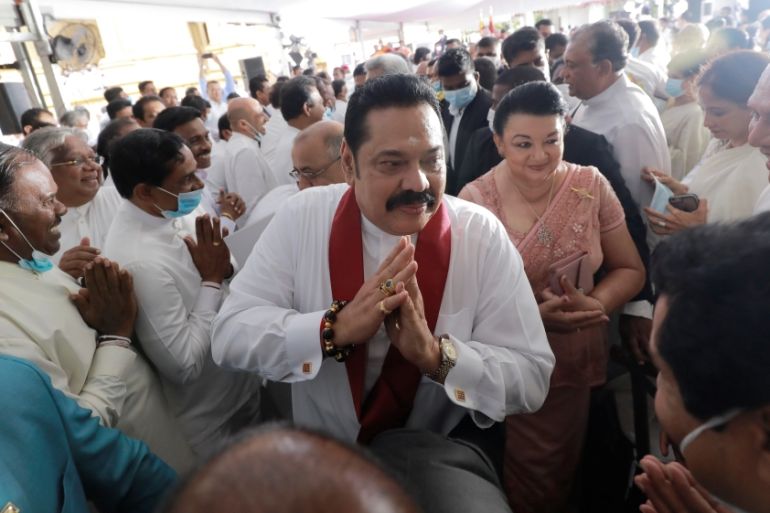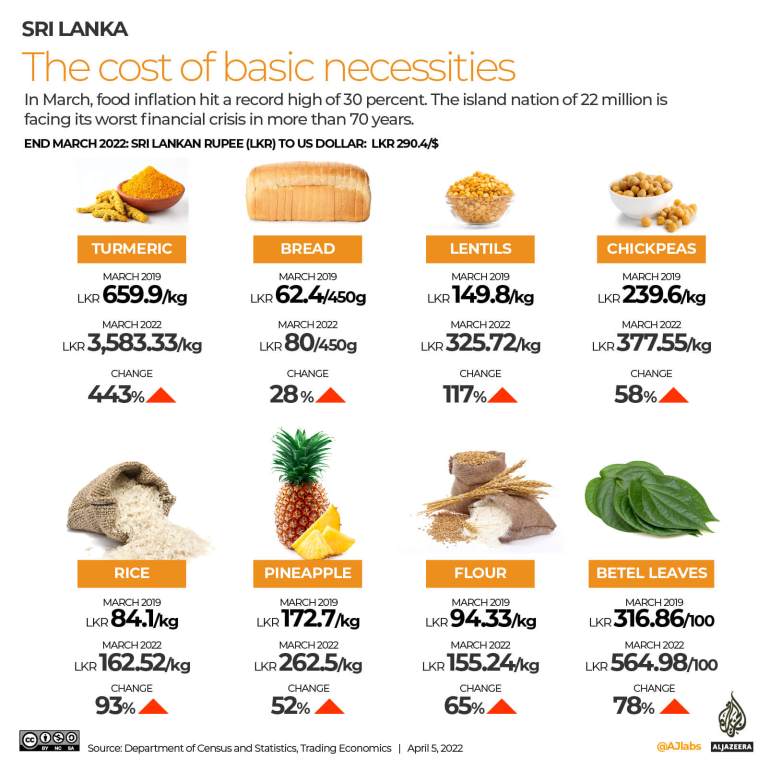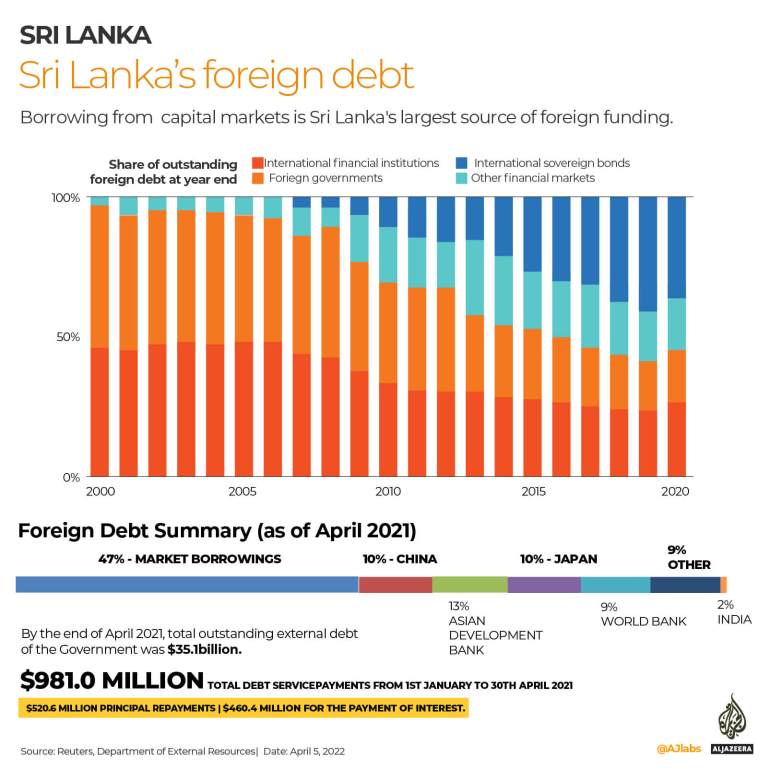Sri Lanka PM appeals for ‘patience’ from protesters amid crisis
Mahinda Rajapaksa urges protesters to end mass demonstrations calling for the government to resign over the island’s worst economic crisis in decades.

Sri Lanka’s embattled Prime Minister Mahinda Rajapaksa has pleaded for “patience” as thousands continue to take to the streets to protest against his family’s rule, with public anger at a fever pitch over the country’s worsening economic crisis.
Sri Lanka’s 22 million residents have seen weeks of power blackouts and severe shortages of food, fuel and even life-saving medicine in the country’s worst downturn since independence in 1948.
Keep reading
list of 4 itemsThousands in Sri Lanka insist Rajapaksa family quit politics
No Sri Lankan, rich or poor, spared as economic crisis worsens
Infographic: Sri Lanka’s economic crisis and political turmoil
Rajapaksa and his younger brother, President Gotabaya Rajapaksa, have become a focus of the protests that started over shortages of fuel, food and other essentials and daily power outages.
Most of those items are paid in hard currency, but Sri Lanka is on the brink of bankruptcy, saddled with dwindling foreign reserves and $25bn in foreign debt. Nearly $7bn is due this year.

Protesters have rallied daily since Saturday against the president in capital Colombo and across the island nation, chanting “Gota go home” and calling for his government’s removal.
In his first address since the crisis, Mahinda – the patriarch of the powerful Rajapaksa family omnipresent in Sri Lanka’s politics for two decades – said he needed more time to pull the nation out of the deep end.
“Even if we can’t stop this crisis in two or three days, we will solve it as soon as possible,” Rajapaksa said in his televised address.
“Every minute you protest on the streets, we lose an opportunity to earn dollars for the country,” he said.
“Please remember that the country needs your patience at this critical moment.”

Pressure on the powerful Rajapaksa family has intensified in recent days, with the country’s vital business community also withdrawing support for them over the weekend.
Mahinda did not directly address the growing calls for him and Gotabaya to step down, but he defended his administration by saying that opposition parties had rejected their offer to form a unity government.
“We invited all other parties to come forward and take up the challenge, but they did not, so we will do it on our own,” he said, also blaming Sri Lanka’s ballooning foreign debt on the pandemic.
Critics accuse the Rajapaksas of borrowing heavily to finance projects that have earned no money, such as a port facility built with Chinese loans.

Supporters of camped-out protesters supplied drinking water, food and tea while ambulances and doctors stood by to deal with any health emergencies. Muslim protesters broke their Ramadan fast at the site, sharing food with those around them.
Even political allies of Mahinda Rajapaksa called for him to be replaced with an interim prime minister and a multiparty government. They say they do not want the powerful Rajapaksa family in an interim government because it is at the centre of public ire.
The crisis and protests prompted many cabinet members to resign. Four ministers were sworn in as caretakers, but many of the key portfolios are vacant.
Parliament has failed to reach a consensus on how to deal with the crisis after nearly 40 governing coalition legislators said they would no longer vote according to coalition instructions, significantly weakening the government.
While the coronavirus-spurred restrictions and stoppages have torpedoed Sri Lanka’s vital tourism-driven economy, experts say the crisis was exacerbated by government mismanagement, years of accumulated borrowing and ill-advised tax cuts.
The government is preparing for bailout negotiations with the International Monetary Fund (IMF) this week, with finance ministry officials saying that sovereign bond-holders and other creditors may have to take a haircut.
Sri Lanka expects $3bn from the IMF to support the island’s balance of payments in the next three years.